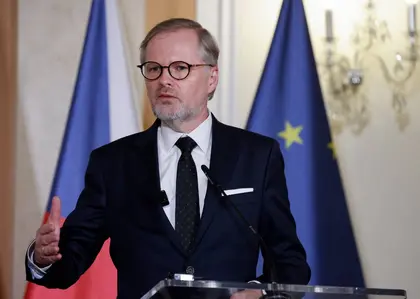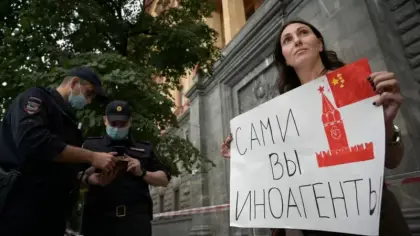Russian President Vladimir Putin has signed into law a number of new bills, including legislation that broadens the definition of “foreign agents” and introduces prison terms for calls to act against national security.
A bill on “foreign agents”, which will come into force on December 1, was published by the government on Thursday.
JOIN US ON TELEGRAM
Follow our coverage of the war on the @Kyivpost_official.
According to the new legislation, anyone “under foreign influence” or receiving support from abroad — not just foreign money — can now be declared a “foreign agent” in Russia.
In recent years the label, which is reminiscent of the “enemy of the people” of the Soviet era, has been used extensively against opponents, journalists and human rights activists accused of conducting foreign-funded political activities.
Putin also signed off on a bill introducing prison terms of up to seven years for calls to act against national security.
Russian society is reeling from a historic crackdown on dissent which has intensified since Putin sent troops to Ukraine on February 24.
Rights activists fear the new legislation will be used to snuff out any last vestiges of dissent.
In March, Russia passed into law prison sentences of up to 15 years for spreading false information aimed at discrediting its military forces.
The Russian leader also backed a bill on the establishment of a patriotic youth movement in a move reminiscent of Soviet-era youth organisations.

Czechs Complete Pipeline to Replace Russian Oil Supply
Russian officials have said Putin will be asked to head the supervisory board of the movement which will seek to champion government efforts to enhance patriotic and Russian values among children and the youth.
In the USSR, children were taught Soviet values through three main youth organisations — the Little Octobrists, Young Pioneers and the Komsomol.
The new organisation will be open to all children from the age of six and will be financed by the state.
You can also highlight the text and press Ctrl + Enter










